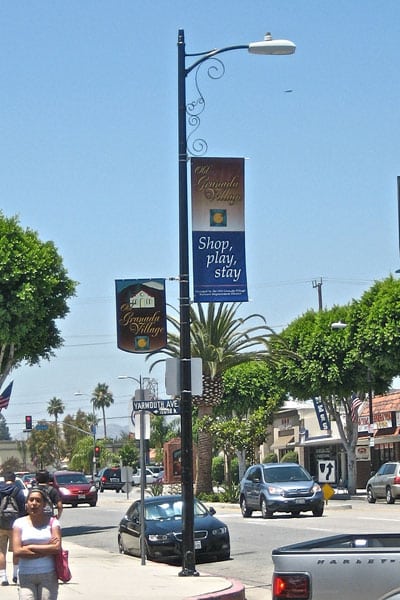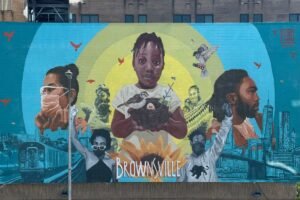
October 1, 2018; Next City and Reimagine!
We see the essence of vibrant democracy when community members organize to work with—or even to pressure—local government to get civic services they feel they need to improve their neighborhoods. But when community-based nonprofit organizations replace local governments and take on the functions of government, is it a step too far? What about if these organizations represent only a segment of the communities where they exert control? The results of a recently published study of California’s BIDs and CBDs raise this very question.
Business Improvement Districts (BIDs) and Community Benefits Districts (CBDs) comprise business and property owners in designated geographic areas who have organized for neighborhood improvements. They emerged in the 1960s to help struggling urban areas as city governments faced mounting financial challenges and business districts felt the impact of decreasing public services. Organized as 501c3 or 501c4 organizations, they empower their members to levy taxes and special fees within their boundaries and directly allocate these funds with little or no civic oversight for improved street cleaning, increased policing, infrastructure improvements, and other services traditionally within the sole purview of city governments. Unlike city governments, not every resident has a vote and a say in the specific policies and practices of each BID/CBD. Nationally, there are now more than 1,000 BIDs and CBDs, collecting and spending millions of dollars annually.
The new study, conducted by the Policy Advocacy Clinic at UC Berkeley School of Law, found that California’s BIDs and CBDs often work against the interests of those who are homeless. According to Next City’s reading of the study’s findings, “The growth of BIDs ‘correlates strongly’ with the increase of laws like those that ban sitting or lying down on the sidewalk during certain times of day.”
It tracks instances of individual BIDs policing homeless people or coordinating with police to confront people living on the street. And it found in a survey that more than 80 percent of BIDs identified “panhandling and loitering” as an important safety and security concern.
Seth Grossman, founder and director of the Rutgers Institute of Business District Management, told the RP&E journal Reimagine! that he “sees Business Districts as improving government accountability by shifting the taxing and spending decisions about a neighborhood to a level closer to those who have a stake in it—the business owners. They act, in effect, as a political action group.” Representatives of California BIDs and CBDs told Next City that “they want to improve their neighborhoods for the people living on the street as much as for the property owners who pay the assessments…they hire people living on the street for certain jobs and try to help others find services.” NPQ recently spotlighted Chrysalis, a L.A.-based organization serving the homeless that is successfully partnering with a BID to improve lives.
Sign up for our free newsletters
Subscribe to NPQ's newsletters to have our top stories delivered directly to your inbox.
By signing up, you agree to our privacy policy and terms of use, and to receive messages from NPQ and our partners.
But their preferred solution may be to relocate homeless people rather than address the problem of homelessness. From Grossman’s perspective,
BIDs aim to move homeless people out of the districts. “It’s a customer service district. So, they are concerned about customers. They don’t see the homeless people as customers…if they don’t see you as a customer, you are in trouble; you are either a customer or a contagion.”
Paul Boden, executive director of the Western Regional Advocacy Project, which advocates for homeless people, tells Next City that “most BIDs are just paying lip service to helping the homeless, when they really just want them out of sight.”\
BIDs only exist to tidy up downtowns and create more wealth for a select few. The groups that do engage in policy advocacy work should spend less time worrying about street-level quality-of-life issues and more time pressing for investment in permanent, affordable housing for the homeless. Simply referring a homeless person to a shelter is an empty gesture…the shelter waitlist is over 1,200 names long.
It is natural for groups with a common interest to band together, and when the economics of many core cities make effective governance challenging, it is just as natural for business interests to work toward making their businesses succeed. But, allowing them to replace rather than work with the city government risks further marginalizing those who need effective government the most.—Martin Levine











